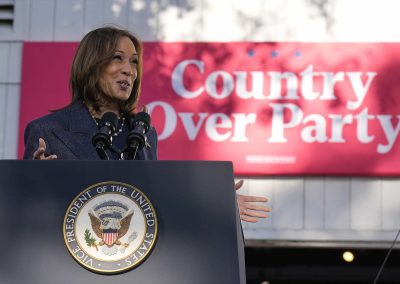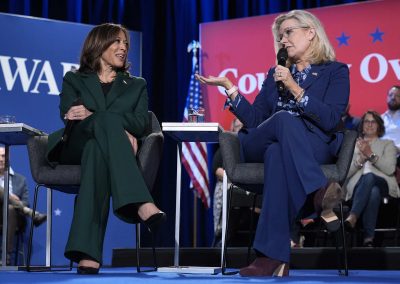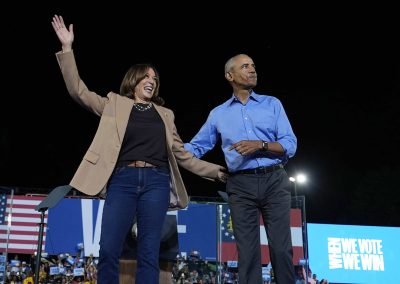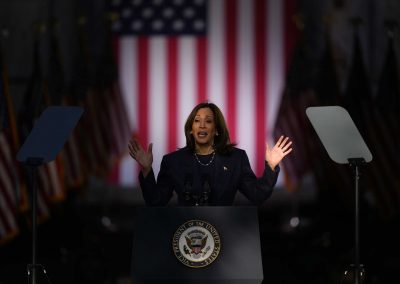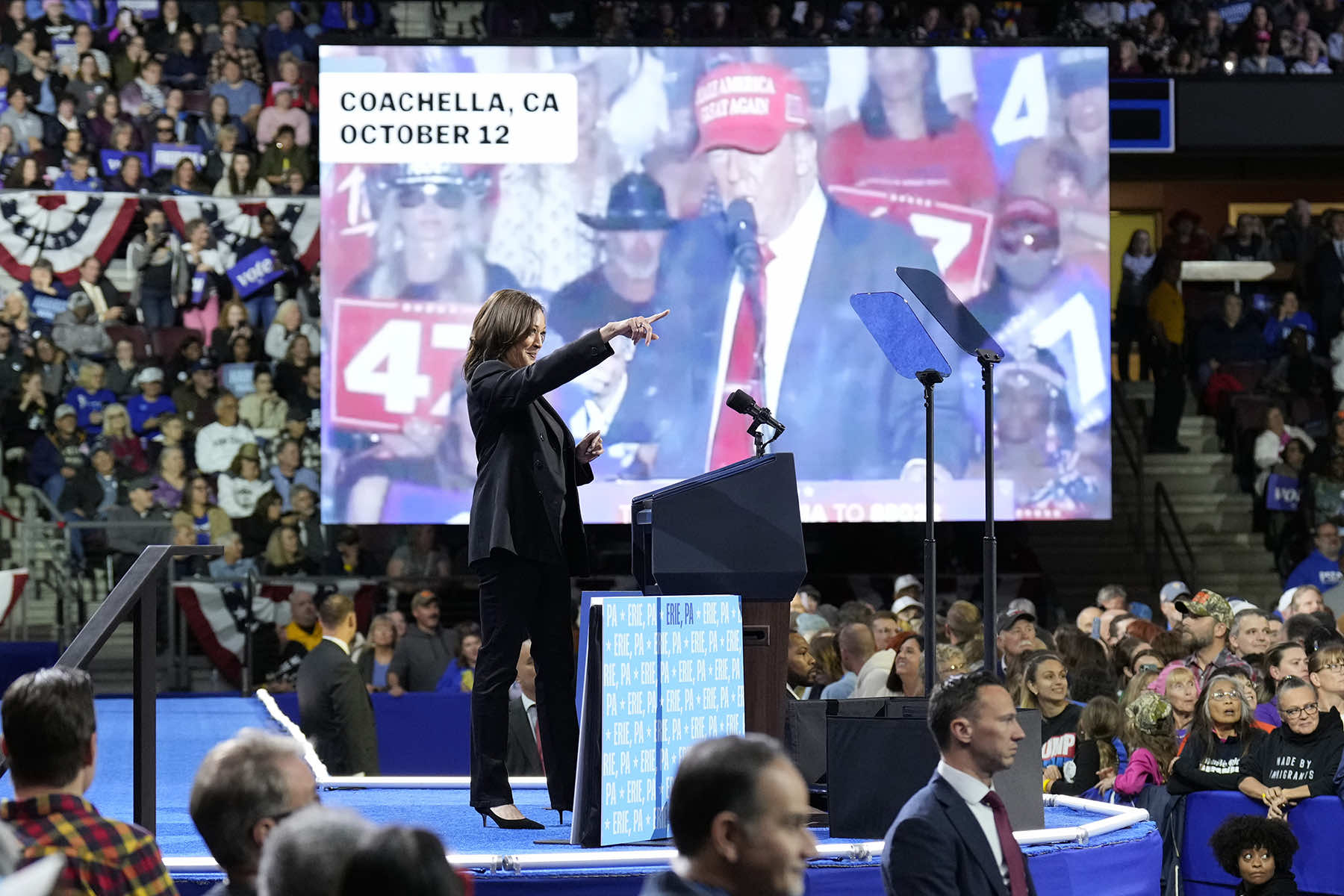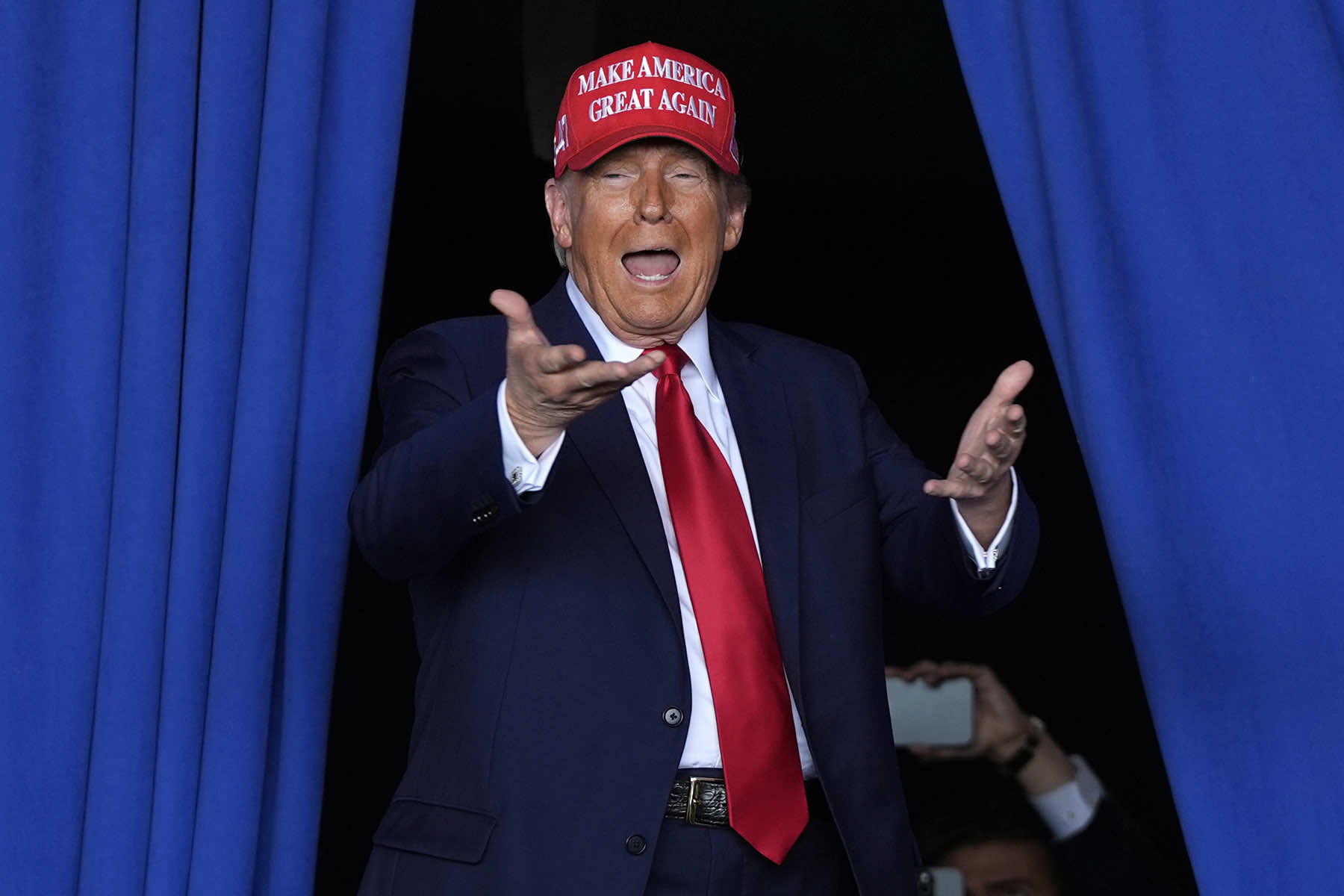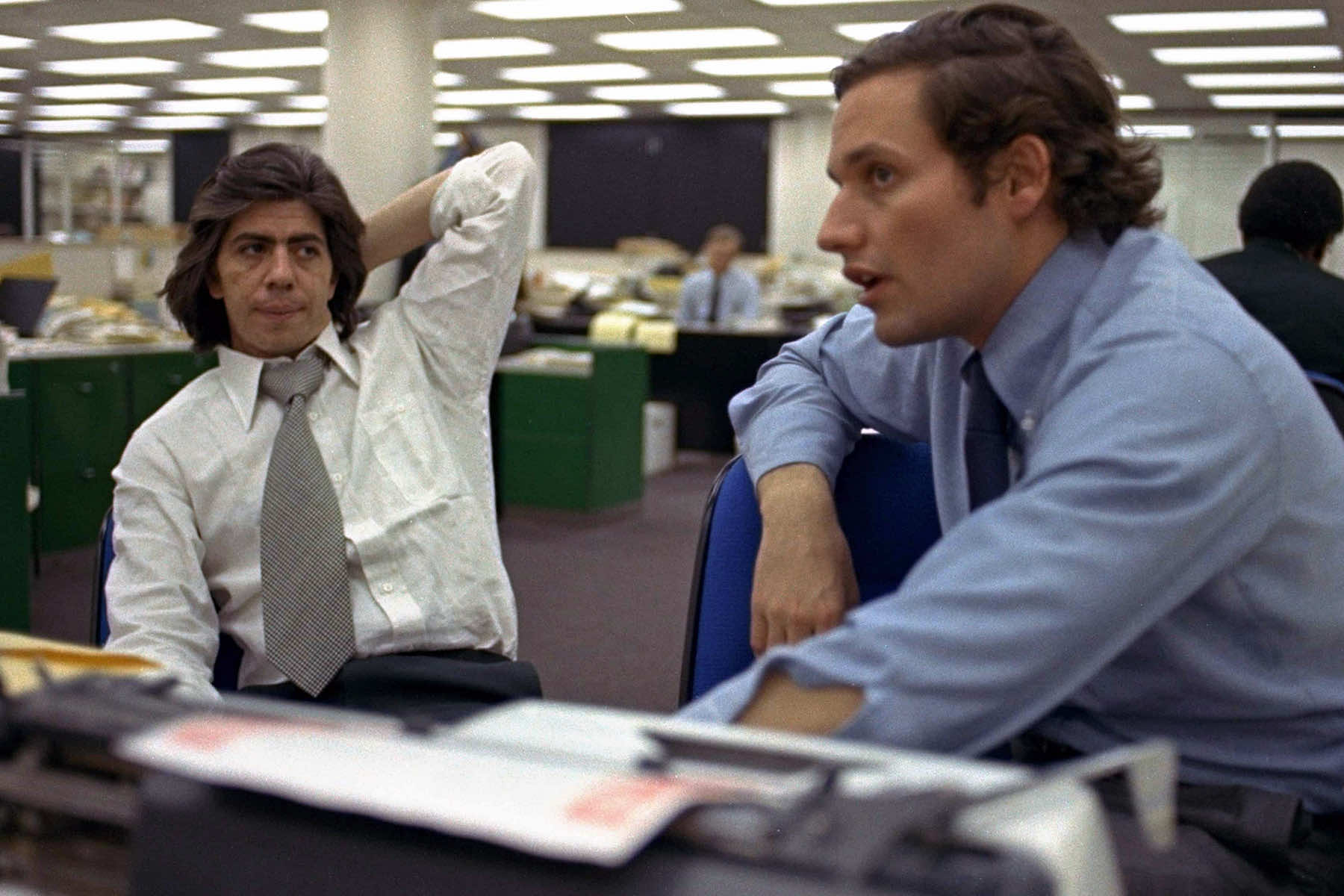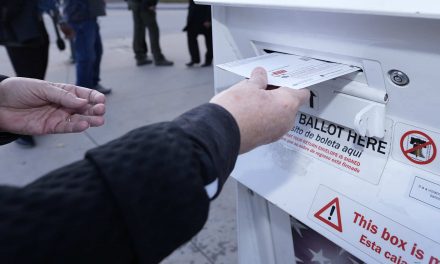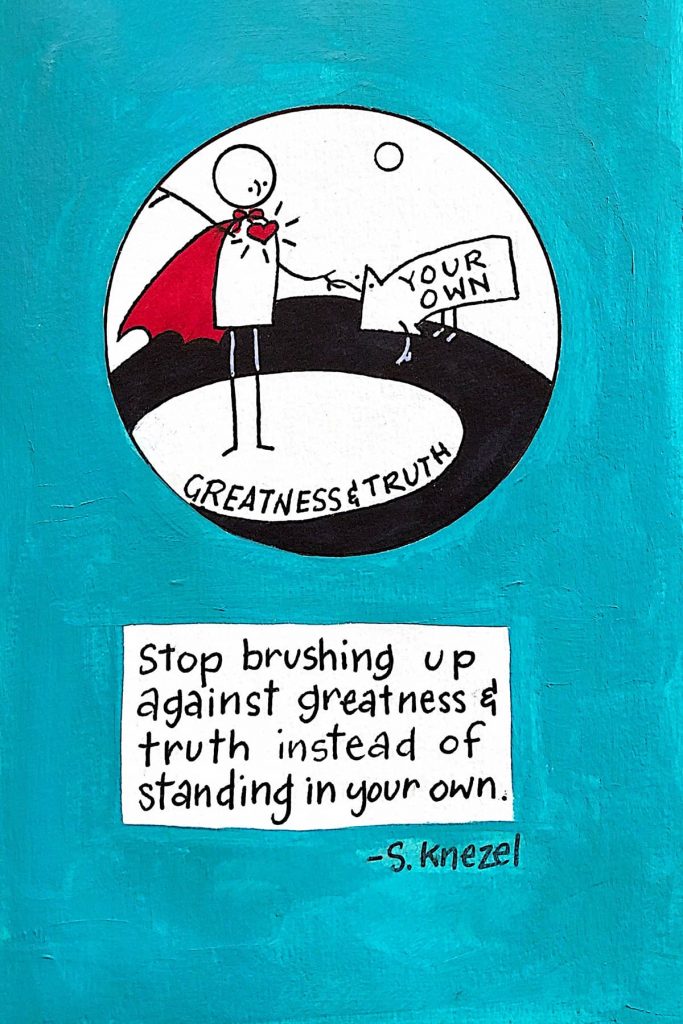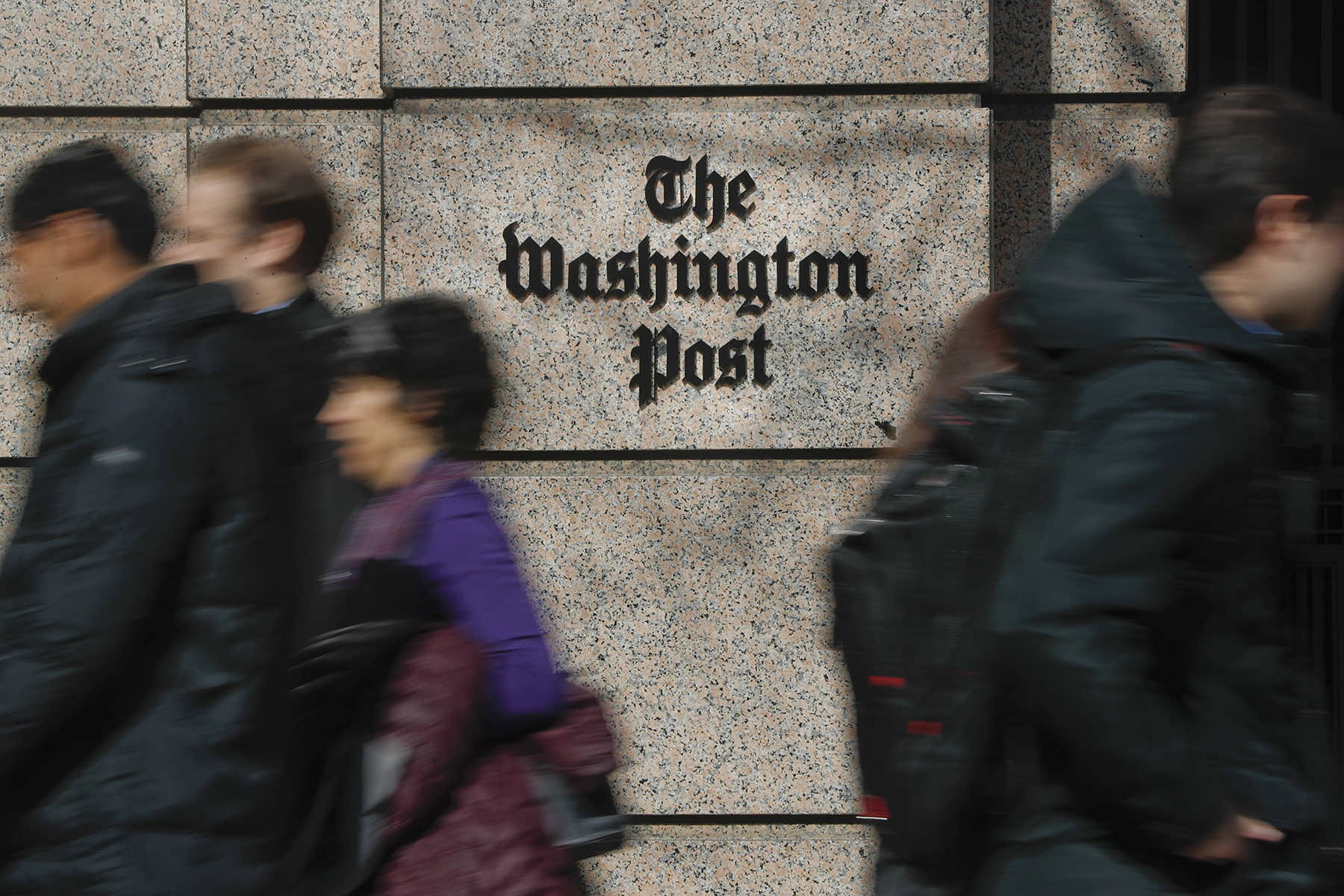
With just over a week before Election Day, “The Washington Post” said on October 25 it would not endorse a candidate for president in this year’s tightly contested race, and would avoid doing so in the future. It was a decision immediately condemned by a former executive editor, current staff, and subscribers to the paper.
In an article posted on the front of its website, “The Post” — reporting on its own inner workings — also quoted unidentified sources within the publication as saying that an endorsement of Kamala Harris over convicted felon and self-proclaimed aspiring dictator Donald Trump had been written but not published.
Those sources told “The Post” reporters that the company’s owner, amazon.com billionaire Jeff Bezos, forced the unprecedented decision.
It comes at a fraught time for American media, newspapers in particular. Local news is drying up in many places. And after being upended by the economics of the internet and drastically evolving reader habits, the top legacy media — including “The Post,” “The New York Times,” and others — have been struggling to keep up with a changing landscape.
Nowhere is this more true, perhaps, than in the political arena. The candidates this year have been rejecting some mainstream interviews in favor of podcasts and other niche programming, and many news organizations are vigorously ramping up to combat misinformation in near-real time on Election Day, November 5.
Trump, who for years called the media covering him “the enemy of the people,” has returned to such rhetoric. His violent and vitriolic tirades have even been aimed at CBS, whose broadcast license he has threatened to revoke.
When a media outlet, particularly a highly respected one like “The Post,” takes a neutral stance in a political climate where one candidate has clear authoritarian tendencies, critics argue that it plays into the authoritarian’s hands.
Aspiring dictators often rely on weakening or undermining democratic norms and the public’s belief in balanced, responsible leadership. By staying neutral, the press can inadvertently normalize the authoritarian’s agenda by not directly opposing it or by creating a “both-sides” narrative, where both candidates appear equally valid, regardless of their intentions or track records on democracy and rule of law.
This proclaimed neutrality can also embolden authoritarians by giving the impression that democratic institutions are too passive to stand up to them. For readers who depend on the press to act as a watchdog, silence or neutrality during a critical election feels like an abdication of responsibility.
This is especially true if a candidate like Trump has repeatedly made clear his authoritarian agenda, such as eroding freedoms, sidelining the press, using the military to arrest his perceived political enemies, and invalidating the U.S. Constitution.
The phrase “giving over your power” reflects how, by choosing neutrality, the press essentially forfeits its power to shape public opinion toward preserving democratic values. In turn, an authoritarian candidate like Trump benefits, as this lack of opposition can embolden supporters and undermine the resolve of those who might otherwise rally against authoritarianism.
For many readers, such neutrality by “The Post” feels like an acceptance of the authoritarian threat posed by Trump — a quiet relinquishing of the media’s influential voice that might otherwise galvanize resistance to authoritarianism. In their view, taking no stance means not defending democracy when it matters most, thus indirectly empowering authoritarian agendas.
At the heart of the backlash is a sense of disbelief that “The Post,” a publication known for its motto “Democracy Dies in Darkness,” would choose silence at a time when democracy itself seems to be in peril. For many of its readers, this is not just another election but a crossroads for the American democratic experiment.
With one of the candidates openly challenging the foundations of democratic governance — from questioning election legitimacy to weakening checks on executive power — critics argue that the stakes have never been higher.
Publisher of “The Post,” Will Lewis, wrote in a column that the decision was a return to a tradition the paper had decades ago of not endorsing candidates. He said it reflected the paper’s faith in “our readers’ ability to make up their own minds.”
“We recognize that this will be read in a range of ways, including as a tacit endorsement of one candidate, or as a condemnation of another, or as an abdication of responsibility. That is inevitable,” Lewis wrote. “We don’t see it that way. We see it as consistent with the values the Post has always stood for and what we hope for in a leader: character and courage in service to the American ethic, veneration for the rule of law, and respect for human freedom in all its aspects.”
“The Post” said the decision had roiled many on the opinion staff, which operates independently from the newsroom staff — what is known commonly in the industry as a “church-state separation” between those who report the news and those who write opinion.
The move came the same week that the “Los Angeles Times” announced a similar decision, which triggered the resignations of its editorial page editor and two other members of the editorial board. In that instance, the owner of “The Times,” billionaire Patrick Soon-Shiong, insisted he had not censored the editorial board, which had planned to endorse Harris.
“As an owner, I’m on the editorial board and I shared with our editors that maybe this year we have a column, a page, two pages, if we want, of all the pros and all the cons and let the readers decide,” Soon-Shiong said. He claimed to fear endorsing a candidate would add to the country’s division.
In August, the newly rebranded Minnesota Star Tribune also announced it would no longer endorse candidates. The paper is owned by billionaire Glen Taylor, who also owns the Minnesota Timberwolves. Its publisher is Steve Grove, who was economic development commissioner in the administration of Gov. Tim Walz — Harris’ running mate.
Many American newspapers have been dropping editorial endorsements in recent years. That is in large part because at a time readership has been dwindling, they do not want to give remaining subscribers and news consumers a reason to get mad and cancel their subscriptions.
Martin Baron, who was executive editor of “The Post” from 2012 to 2021, was in charge of its newsroom in 2013 when Bezos bought the paper. Baron immediately condemned the decision, saying it empowers Trump to further intimidate Bezos and others.
“This is cowardice, with democracy as its casualty,” said Baron on social media. “Disturbing spinelessness at an institution famed for courage.”
At an October 23 rally in Arizona, Trump explicitly returned to his violent language against American democracy and the rule of law once more.
“They’re the enemy of the people. They are,” Trump said to a jeering crowd. “I’ve been asked not to say that. I don’t want to say it. And some day they’re not going to be the enemy of the people, I hope.”
“The Post” endorsed Trump’s Democratic rivals in 2016 and 2020, and Trump has often denounced critical coverage by the paper. On October 25, after Trump spoke in Austin, he greeted executives from Blue Origin, Bezos’ space exploration company. Trump spoke briefly with Blue Origin’s CEO and vice president of government relations. Some critics have publicly speculated that Bezos wanted to avoid antagonizing Trump.
For “The Post” the decision was certain to generate debate beyond the news cycle. It seemed to acknowledge that with a note from the paper’s letters and community editor at the top of the comments section on the publisher’s column: “I know many of you will have strong feelings about this note from Mr. Lewis.”
Indeed, within hours the column had elicited more than 7,000 comments, many critical. Said one, riffing off the slogan used by “The Post” that “Democracy Dies in Darkness”: “Time to change your slogan to `Democracy dies in broad daylight.'”

